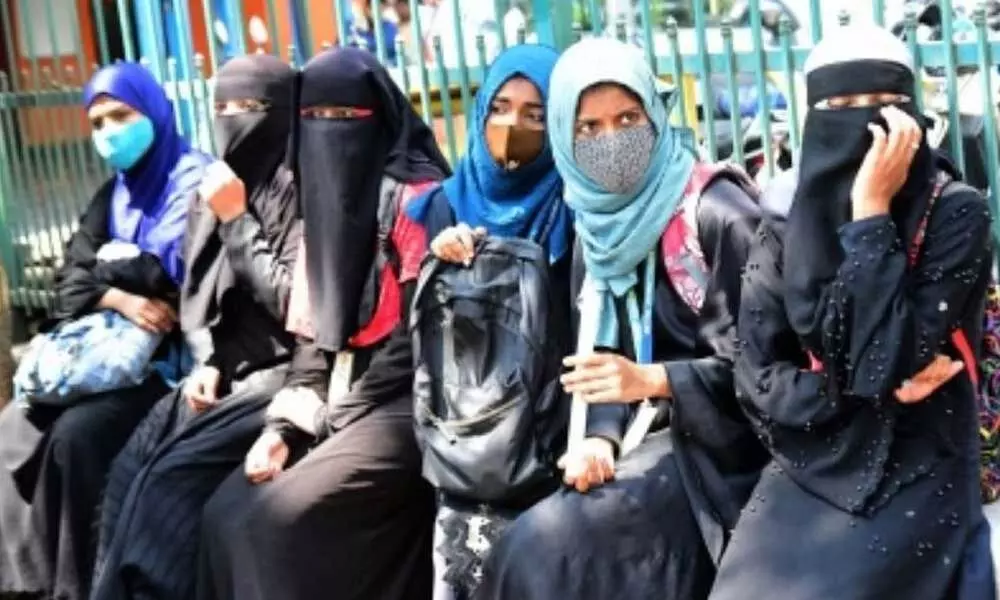Is hijab just about freedom of choice or what's cooking?
The institution did not have any rule on wearing the hijab because no one wore it to the classroom in the last 35 years
image for illustrative purpose

The row over hijab has been raging for over a month now. The fact that young women are protesting to assert their right to wear the hijab is interesting. This is the 21st century and India's 75th year of Independence, so if young women who have grown up in a society that allows free flow of information and an active social media are seeking to go back in time, it is something that should disturb all.
The controversy flared up when six students of a state government-run pre-university college in Udupi, who were wearing the hijab, were asked to leave the campus on January 1. The students addressed a press conference and the matter snowballed into a major issue.
More Muslim students joined the protest, and to counter this, Hindu students started donning saffron scarves. Muslim students petitioned the Karnataka High Court on January 31, seeking the right to the wear hijab in classrooms under Articles 14, 19 and 25 of the Constitution.
The court heard the case for the first time on February 8 and in its interim order restrained all students from wearing the hijab, saffron shawls, scarves and religious flags inside the classrooms.
It is pertinent to mention that the principal of the Udipi college, Rudre Gowda has said: "The institution did not have any rule on wearing the hijab because no one wore it to the classroom in the last 35 years. The students who came with the demand had the backing of some outsiders."
The timing of the controversy is also being questioned as Assembly elections in five States are on, with the Uttar Pradesh polls being regarded as the most critical of the five.
The timeline of the controversy does point to some planned activity behind the scenes. And the fallout is that the controversy is gradually becoming a 'my religion-your religion' issue. The bracketing of the issue as being sought by the protesting Muslim students can be detrimental to the cause of women and their security. It is this that the courts, the government and the civil society need to understand. Making girls wear the hijab and burqa in schools and colleges is an attempt to further deepen the narrative that 'women / girls have to be wrapped up' and that 'covering' them up is for their own 'safety'. Does wrapping up prevent crimes against women? They don't. Crime statistics have repeatedly proven this.
What is needed is the sensitisation of society so that the right and respectful treatment of women is ingrained in every young man. And to achieve this end, schools and colleges are the best places to make a start.

